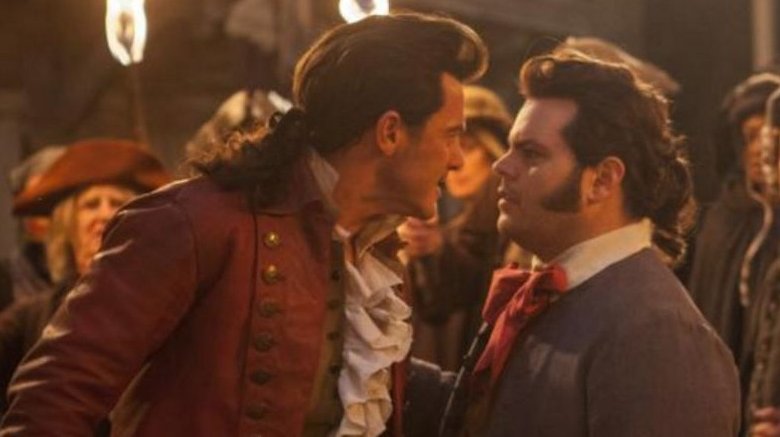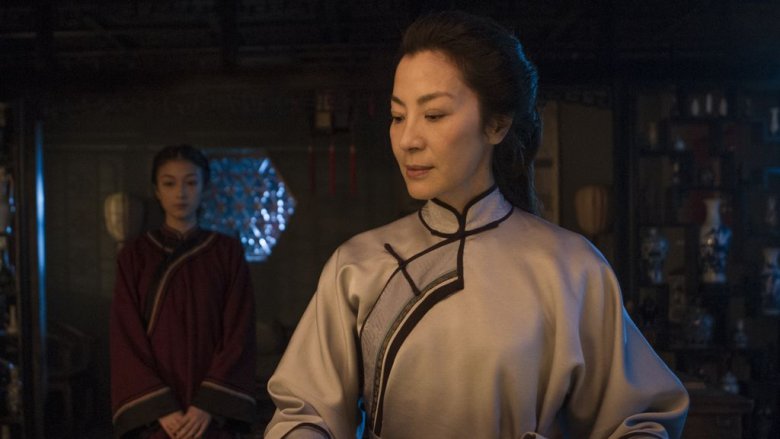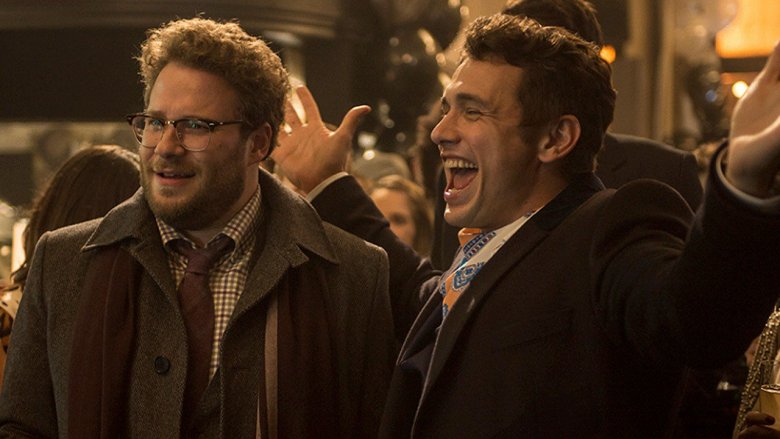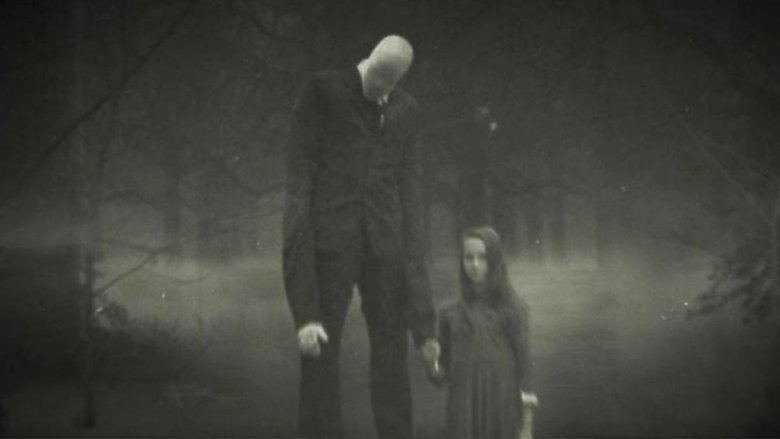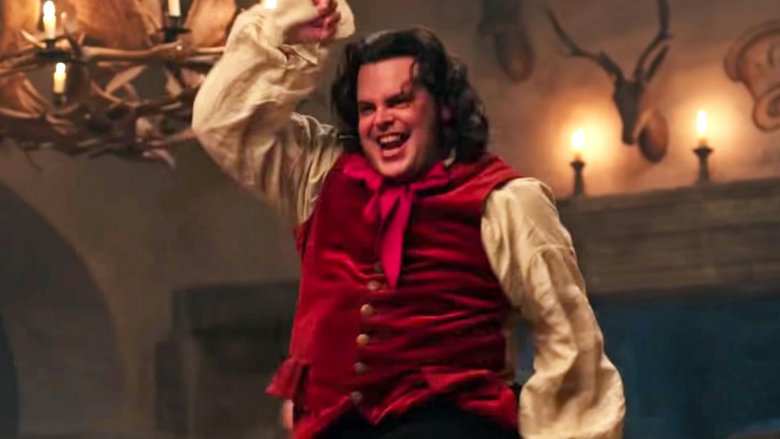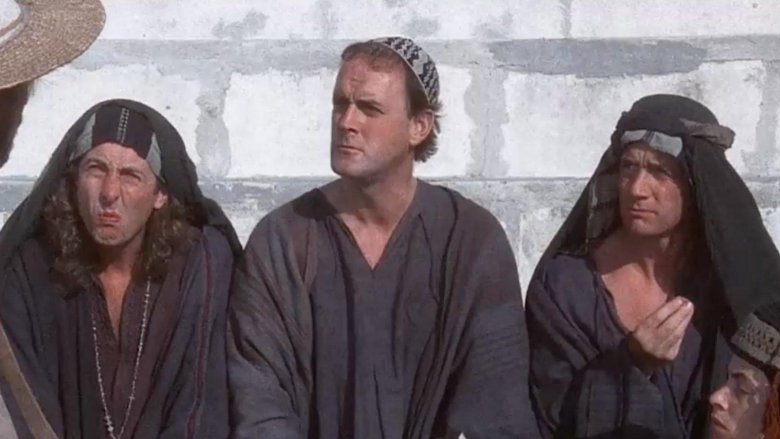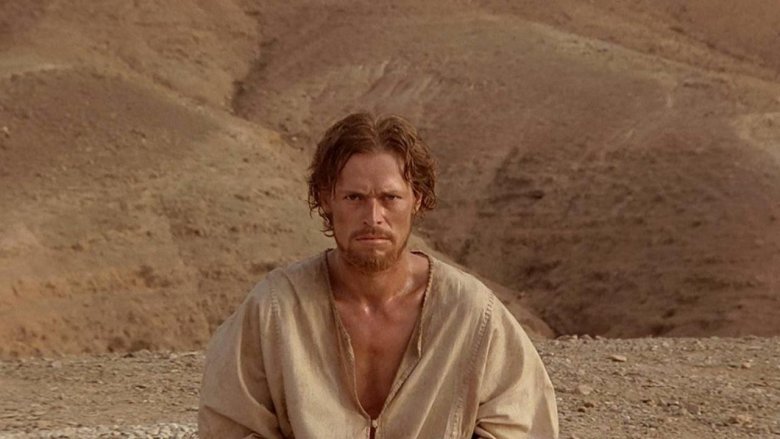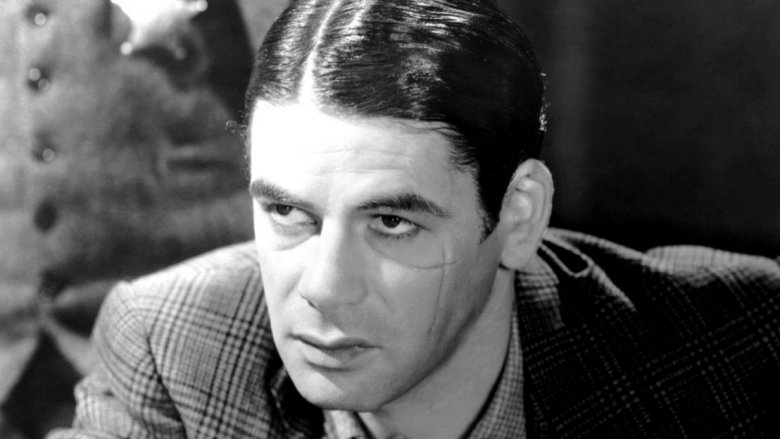Movies That Some Theaters Refused To Show
When movie theaters first came on the scene at the turn of the 20th century, they changed the way we sought out entertainment forever. The early days of cinema were a bit of a lawless land while filmmakers attempted to figure out this brand new medium and how to sell it to viewers everywhere. In time, however, it was acknowledged that film could be a very profound influence on audiences, and from 1930 to 1968, the Motion Picture Production Code was in place to establish a set of moral guidelines for filmmakers.
That sort of mandated censorship doesn't really exist anymore, with the code replaced by the MPAA's rating system (which, of course, has its own issues). But there are still plenty of ways that filmmakers and studios curb the content of their work in order to appeal to as large an audience as possible. Regardless, there are still some theaters that choose not to show certain films for a variety of reasons, whether they be moral, fiscal, or logistical.
Star Wars: The Last Jedi
Perhaps the most popular of the recent films to be refused a theatrical outlet is Star Wars: The Last Jedi. A small Iowa theater decided not to screen this installment of the Star Wars franchise when it was released in December of 2017. It wasn't because of a conflict with the content of the film, but because of an issue with Disney's terms. Apparently, Disney demanded that The Last Jedi be screened in every cinema's largest auditorium for a minimum of four weeks, and that they would receive 65% of ticket revenue from the screenings.
This is a high price to pay for any small-town movie theater, especially in the days where the big screen has been largely eschewed for lots of little screens that stream entertainment at the viewer's pleasure. Of course, The Last Jedi went on to grab a box office total of over $1 billion internationally, but who's to say that any small theater would have seen enough traffic to justify the high cost?
Crouching Tiger, Hidden Dragon: Sword of Destiny
In 2015, the Crouching Tiger, Hidden Dragon sequel Sword of Destiny was the first film to be barred by a theater company because of its simultaneous release on Netflix. Again, with many theaters struggling to compete with streaming services for viewers' attentions, it's only natural that theater owners be wary of such an unbalanced deal. Though the movie itself did fairly well upon its release in China, it was met with a cooler reception stateside.
Though choreographer Yuen Woo-Ping returns, this time in a directorial position, and the incomparable Michelle Yeoh reprises her role as Yu Shu Lien, this sequel lacks a lot of what made Ang Lee's original Crouching Tiger, Hidden Dragon such a tour-de-force of Chinese cinema. One wonders if it would have made a more favorable impression if people had been able to have the full experience of seeing it in a theater.
Beasts of No Nation
After the Crouching Tiger, Hidden Dragon sequel kerfuffle, the Cary Fukunaga film Beasts of No Nation came up against the same issue: AMC, Regal, Cinemark, and Carmike, the four largest movie theater companies in the country, refused to screen this harrowing drama about child soldiers in West Africa because of a simultaneous Netflix release. This remarkable turnout of theater boycotts relegated the film to an extremely small theatrical release, on par with lesser-known art house films, despite the fact that it stars Idris Elba, one of the most prolific and well-liked actors in recent years.
Despite this setback, Elba went on to win a Screen Actors Guild Award for his performance, which shouldn't come as a surprise to anyone who has kept up with his work. He plays a truly unsympathetic role in this film, but his ability to bring gravitas to every project matches the tone of this serious meditation on finding hope amidst cruelty.
Roma
The conflict between Netflix and major cinemas continues even to this day, as AMC and Regal announced in 2019 that they would not include the film Roma in their Oscar showcase screenings, again citing Netflix's disinclination to withhold viewers' same-day streaming ability. The film is a semi-autobiographical drama inspired by writer-director Alfonso Cuaron's life in the Colonia Roma neighborhood of Mexico City in the early 1970s. The main character, Cleo, is an indigenous Mexican woman who works as a live-in maid for an affluent family against a backdrop of great socio-political turmoil.
Despite the lack of support from major theaters, Roma went on to win a great deal of recognition at the Academy Awards, having been nominated for ten awards and ultimately winning three: Best Director, Best Foreign Language Film, and Best Cinematography. Obviously, not having an Oscar showcase run didn't hurt Roma in the eyes of the Academy.
The Interview
Not all theater cancellations are the product of inter-company conflict, however. Some are a matter of public safety. The 2014 comedy The Interview, directed and produced by Seth Rogen and Evan Goldberg, was the subject of some controversy because its plot is centered around the assassination of Kim Jong-Un, the current Supreme Leader of North Korea. When word got out about the movie's premise, a group of hackers calling themselves the "Guardians of Peace" threatened that 9/11-esque tragedy would befall any theater that chose to screen the film, causing Rogen and actor James Franco to cancel publicity appearances.
Not long after this announcement, Carmike, AMC, Regal, and Cineplex all stated that they would not be screening the film, citing the safety of their patrons as their top priority. Because so many chains would not release the film, Sony chose to pull its cinematic debut altogether, though they were met with some criticism from then-President Barack Obama for caving in to terrorist threats.
Slender Man
Because of violence a little too close to home, a Wisconsin theater company chose not to screen the Slender Man film in its Milwaukee and Waukesha locations during the summer of 2018. As many netizens undoubtedly already know, Slender Man is a fictional character born out of a meme on the Something Awful forums in 2009, a cryptid for the modern world. In 2014, two 12-year-old Waukesha girls, allegedly in tribute to this fearsome fictional being, stabbed a friend 19 times, nearly killing her.
Because of the severity and premeditated nature of the crime, the girls were tried as adults and charged with first-degree attempted homicide. Though the victim survived, this horrifying tragedy has surely left its mark on area citizens, who are likely baffled that such young girls could be motivated to cause such violence. The theater company chose to withhold the screening out of respect for the victim, and it's hard to fault them for that choice, given the circumstances.
Beauty and the Beast
Some film controversies are not as life-threatening as terrorist attacks or small town teenage violence, but can seem harmful in different, more subtle ways. Such is the case of a drive-in theater in Alabama that refused to screen the live action version of Disney's Beauty and the Beast because of claims that the character LeFou, Gaston's wacky lacky, is gay. The proprietors of the cinema implied that homosexuality was inappropriate for all-age audiences, and that it was a sin, citing their Christian faith as first and foremost in their decision-making process.
Of course, it is the right of any independent business to curate certain practices to suit their own needs and ideals. That doesn't mean this chain can't be criticized for the decision to ostracize moviegoers who may want to see themselves reflected — perhaps for the first time ever — in the media they consume. Whether or not LeFou can be considered an example of decent gay representation, it is unfortunate that this theater chose to discriminate based on the sexuality of a fictional character and send a clear message to their patrons about who they do and do not approve of in their establishment.
Monty Python's Life of Brian
Of course, religious fervor has always been a cause for controversy in art and media. Such was the case with Monty Python's religious satire, Life of Brian, wherein a young Jewish man who was born on the same day as Jesus Christ gets mistaken for the Messiah. Upon its release in 1979, it was actually banned in Ireland and Norway because of its blasphemous themes.
The film itself sets out to criticize the misunderstandings and pitfalls of modern organized religion, not to lampoon anyone's faith in God or Jesus Christ. But as with the Beauty and the Beast situation, audiences and theater owners are happy to voice their own opinions on matters that affect their faith before even seeing the work in question — sometimes to their detriment, as Life of Brian went on to net an outstanding box office total stateside. The movie's legacy is secure, as proven by a 40th anniversary reissue with over 400 screenings across the United States and United Kingdom.
The Last Temptation of Christ
A more serious film that drew inspiration from Christianity and ire from Christian movie-goers is 1988's The Last Temptation of Christ, Martin Scorsese's adaptation of the novel by Nikos Kazantzakis. In the film, Jesus (played by Willem Dafoe) is depicted struggling with various temptations, imagining himself entangled in situations that conflict with certain Biblical depictions of Christ. Upon its release, an organization called Mastermedia International incited a boycott, followed by Christian radio coverage, protests, and eventually three U.S. theater companies deciding not to screen it at all. In Paris, the Saint-Michel cinema chose to screen it to their own detriment — a fundamentalist Catholic group set fire to the theater as the movie was playing. In trying to portray Christ as having all the conflicts of both a god and a man, Scorsese reignited the flames of fundamentalist religious fury, both at home and abroad.
Scarface (1932)
Most people have heard of Scarface, the 1983 film starring Al Pacino. But some may not know that it is, in fact, a remake of a 1932 film of the same name, loosely based on a novel that was itself inspired by the pre-eminent mobster of the decade, Al Capone. Though this original Scarface was already subject to Motion Picture Production Code censorship, it still faced controversy upon its release to the general public. Many Italian-Americans found the subject matter offensive, as Italian characters were almost exclusively relegated to harmful stereotypes of gangsters or bootleggers in films at the time. Scarface was banned in several cities and states, including Chicago, where it finally reached the big screen in 1941.
There was also speculation that gangsters, including Al Capone himself, did not want the film to play in theaters because it was too revealing about their criminal business. Scarface was one of the films to inspire the creation of the Production Code Administration, whose job was to formally enforce the Motion Picture Production Code set up at the beginning of the decade. Over 50 years later, its remake would prove very successful, despite the graphic violence and pushback against the depictions of Cuban expats as criminals, echoing the unrest experienced by Italian-Americans back in the '30s.
